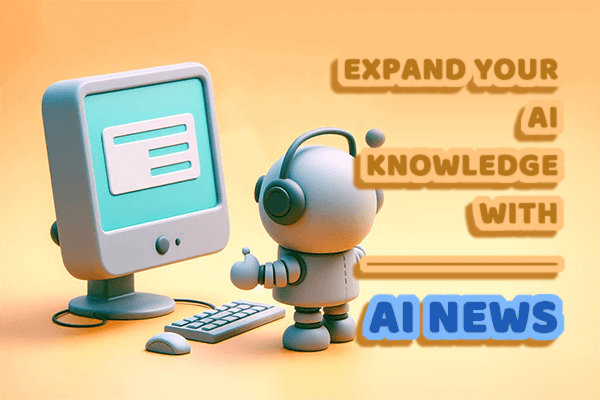On November 6th, 2023 at 10 a.m. PST, San Francisco hosted the inaugural OpenAI Developer Conference known as "OpenAI DevDay". This gathering was to highlight OpenAI's latest technology and bring together developers from all over the world to preview new tools and engage in discussions with the OpenAI team.

During the conference, OpenAI CEO Sam Altman made major announcements regarding GPT-4 and ChatGPT. GPT-4 is a recently introduced large-scale language model with significant implications for intelligent agents, while ChatGPT is a dialogue-based language model.
Altman also outlined OpenAI's latest advancements, future plans in technology, platform development, and collaborations. Plus, he introduced the GPT-4 Turbo model, which offers notable advantages in terms of increased volume, enhanced speed, and cost-effectiveness. Let's delve into the updates from this technology-focused event.
Part 1: What Is OpenAI?
1. Overview of OpenAI
Based in SF, California, OpenAI, a research company specializing in artificial intelligence, was established in late 2015. It primarily aims to attain AGI that serves the improvements of humanity. Being a prominent player in the AI domain, OpenAI embraces an ambitious vision and has accomplished notable milestones in its field.
2. What Outlook Does OpenAI Hold?
OpenAI is committed to the development of AI that matches human intelligence for the betterment of society while also being responsible for resources. The WorldBrain initiative is a prime example of this dedication, as it signifies a major achievement in AI technology. The project is dedicated to the ethical and safe advancement of AI, with the ultimate goal of creating a brighter future for all.
3. What Has OpenAI Done in AI R&D?
- GPT Models: OpenAI's GPT series, from GPT-1 to GPT-4, excel in language generation, with GPT-3 and GPT-4 being particularly impressive.
- DALL·E: OpenAI's DALL·E generates high-quality images from text descriptions, bridging language, and visuals.
- Codex Auto Encoder: OpenAI's Codex auto encoder automates programming, finding applications in code generation and natural language processing.
- PPO Algorithm: OpenAI's PPO algorithm is a powerful tool for training intelligent agents in various tasks through reinforcement learning.
- WorldBrain Project: OpenAI's WorldBrain project focuses on advancing AI safely and for the benefit of society by creating a global neural network that analyzes internet data to solve real-world problems.
Part 2: What Are the Latest Improvements in GPTs According to OpenAI DevDay?
1. Equip GPT-4 Turbo with 128K Context While Updating GPT-3.5 Turbo
Improved GPT-4 Turbo
In March 2023, OpenAI released GPT-4, followed by its availability to all developers in July. Now, it's unveiling a preview of GPT-4 Turbo, a more powerful model with knowledge up to April and enhanced capabilities. GPT-4 Turbo offers cost savings, with 3x cheaper input tokens and 2x cheaper output tokens compared to GPT-4. Paying developers can try GPT-4 Turbo via the gpt-4-1106-preview API.
Updated GPT-3.5 Turbo
The improved GPT-3.5 Turbo supports better instruction following, JSON mode, and parallel function calling, showing a 38% boost in tasks like JSON, XML, and YAML generation. Access the new model through the gpt-3.5-turbo-1106 API, and apps using the gpt-3.5-turbo name will auto-upgrade on December 11, 2023.
2. GPT-4 Fine-tuning Access & Function Calling Updates
Fine-tuning on GPT-4
While GPT-3.5 showed significant improvements with fine-tuning, early indications suggest that GPT-4 fine-tuning may require more effort for substantial gains. As OpenAI enhances its quality, developers using GPT-3.5 fine-tuning will soon have the option to transition to the GPT-4 program via their fine-tuning console.
Refined Function Calling
Function calling lets models generate JSON objects for your app or external APIs. OpenAI is conducting improvements, allowing multiple functions in one message and enhancing accuracy. Again, GPT-4 Turbo is now better at returning the right function parameters.
3. Enhanced Instruction Following and JSON Mode
GPT-4 Turbo outperforms previous models in tasks requiring precise instruction and introduces a new JSON mode. Developers can now use the response_format API parameter to ensure valid JSON responses, which is particularly useful when generating JSON in the Chat Completions API.
4. Consistent Outputs and Log Probabilities
The new seed parameter ensures consistent model outputs useful for debugging, unit testing, and better control. OpenAI has benefited from it in internal tests and is eager to see developers' applications. This company also adds log probabilities for top output tokens from GPT-4 Turbo and GPT-3.5 Turbo, enabling features like search autocomplete.
5. Assistants API with New Modalities
Assistants API
This flexible API serves various use cases. It leverages GPTs' capabilities, including custom instructions and tools like the Code Interpreter, Retrieval, and more. One notable enhancement is the introduction of persistent, infinitely long threads, relieving developers of thread state management and overcoming context window limitations.
New Modalities
GPT-4 Turbo: Supports image inputs in the Chat Completions API for tasks like captioning and image analysis. BeMyEyes employs this to aid the visually impaired. Pricing varies by input image size.
DALL·E 3, integrated with ChatGPT Plus and Enterprise, is accessible through the Images API with the dall-e-3 model. Prices start at $0.04 per generated image.
6. Text-to-Speech & Higher Rate Limits
Text and Voice Switching
Developers can now convert text into human-quality speech with the text-to-speech API, offering six voices and two models (Voice interfaces & audiobooks). Pricing starts at $0.015 per 1,000 characters.
Greater Speed Thresholds
OpenAI is doubling the tokens per minute limit for all paying GPT-4 users. You can check the updated speed limits on your rate limit page. This company has also provided usage tiers for transparency on automatic rate limit increases. Users can request limit increases via their account settings.
Part 3: What Are the Key Highlights in OpenAI DevDay Announcements?
1. Make ChatGPT Plus Fresher and Easier to Use
ChatGPT Plus now offers updated information until April 2023. It has simplified the model selection process; everything is now conveniently in one place. OpenAI employees effortlessly create custom GPT agents in a matter of minutes without any coding expertise. This ease of use suggests a potential proliferation of such agents.
2. Developers Could Integrate GPTs with the Real World
Beyond the built-in capabilities, users can create custom actions, which provide GPTs access to external APIs for data integration or real-world interactions. These actions enable you to link GPTs to databases, email services, or even create shopping assistants. Shortly after, migrating from the plugin's beta is seamless, as you can use your existing plugin manifest to define actions for your GPT.
3. Enterprise Customers Can Implement GPTs for Internal Use Exclusively
Since the release of ChatGPT Enterprise, customers have sought more customization options to align with their business needs. Now, with GPTs, you can create customized ChatGPT versions for specific use cases, departments, or proprietary datasets. Starting on Wednesday, enterprises can empower users to design internal GPTs without coding and securely publish them in their workspace.
4. Design GPTs with a Focus on Privacy and Safety
OpenAI envisions GPTs evolving to handle real-world tasks and emphasizes the importance of safety measures. As you may know, your chats with GPTs are not shared with developers. You have control over data sent to third-party APIs, and customizing GPTs lets builders decide if user chats can help improve models.
5. Protect Customers with Copyright Shield and Make Prices Lower
Copyright Protection
ChatGPT Enterprise and API users now have access to a Copyright Shield. "We assure that we will protect our customers and cover any expenses in the event of legal claims related to copyright infringement", according to Sam Altman.
Lower Price
At the conference, Altman observed that developers expressed their intent to create more if OpenAI could reduce the price. As a response, the company is cutting the price by 3x for input tokens and 2x for output tokens.
By the way, OpenAI aspires to become a leading AI platform, albeit with the ongoing challenge of ensuring transparent compensation for creators.
Part 4: What to Expect Most in the Upcoming Period?
1. OpenAI Will Allow Individuals to Create Their Personalized Versions of ChatGPT
A year after the launch of ChatGPT, OpenAI is now developing a platform for creating custom versions of ChatGPT tailored to specific use cases, all without coding. These AI agents, referred to as GPTs, will soon be accessible through the GPT Store. While specific store details are limited at this time, OpenAI plans to compensate creators based on GPT usage. GPTs will be available to paying ChatGPT Plus subscribers and OpenAI enterprise customers, who can create internal GPTs for their employees.
2. The Launch of the GPT Store Is Scheduled for Later This Month
Would you like to share and sell your custom GPT bots? The good news is that OpenAI is set to unveil the GPT Store later this month, creating a marketplace for individuals to trade their Custom GPTs. In addition, The head of the conference revealed that the company will reward those who develop the most valuable and widely used GPTs.
Calling It a Wrap
In conclusion, the initial developer conference given by the OpenAI company was a triumph, providing a platform for developers worldwide to explore the future development of AI technology together with the OpenAI team. Lastly, let's comprehend the rationale behind this gathering:
Why Is OpenAI's First-ever Developer Conference Important?
- Empowering Developers: OpenAI's GPT-4 and ChatGPT models rely on developer contributions. Developer conferences connect global developers, fostering collaboration and advancing technology.
- Fostering AI Innovation: OpenAI, a non-profit AI research institution, actively promotes AI safety and accessibility. Through developer conferences, it shares research and tools to stimulate AI innovation.
- Showcasing Excellence: The inaugural OpenAI Developer Conference highlighted state-of-the-art AI achievements, such as GPT-3.5, GPT-4, and ChatGPT, exhibiting OpenAI's technological leadership.
- Exploring Future Trends: This conference serves as a platform to delve into emerging AI trends, providing insights for future development. To recap the grand occasion, please visit OpenAI DevDay, the official blog for this event.




